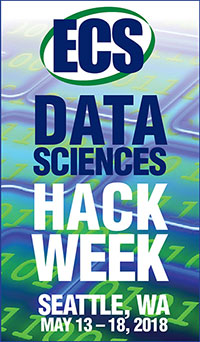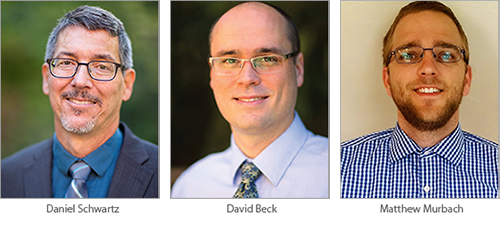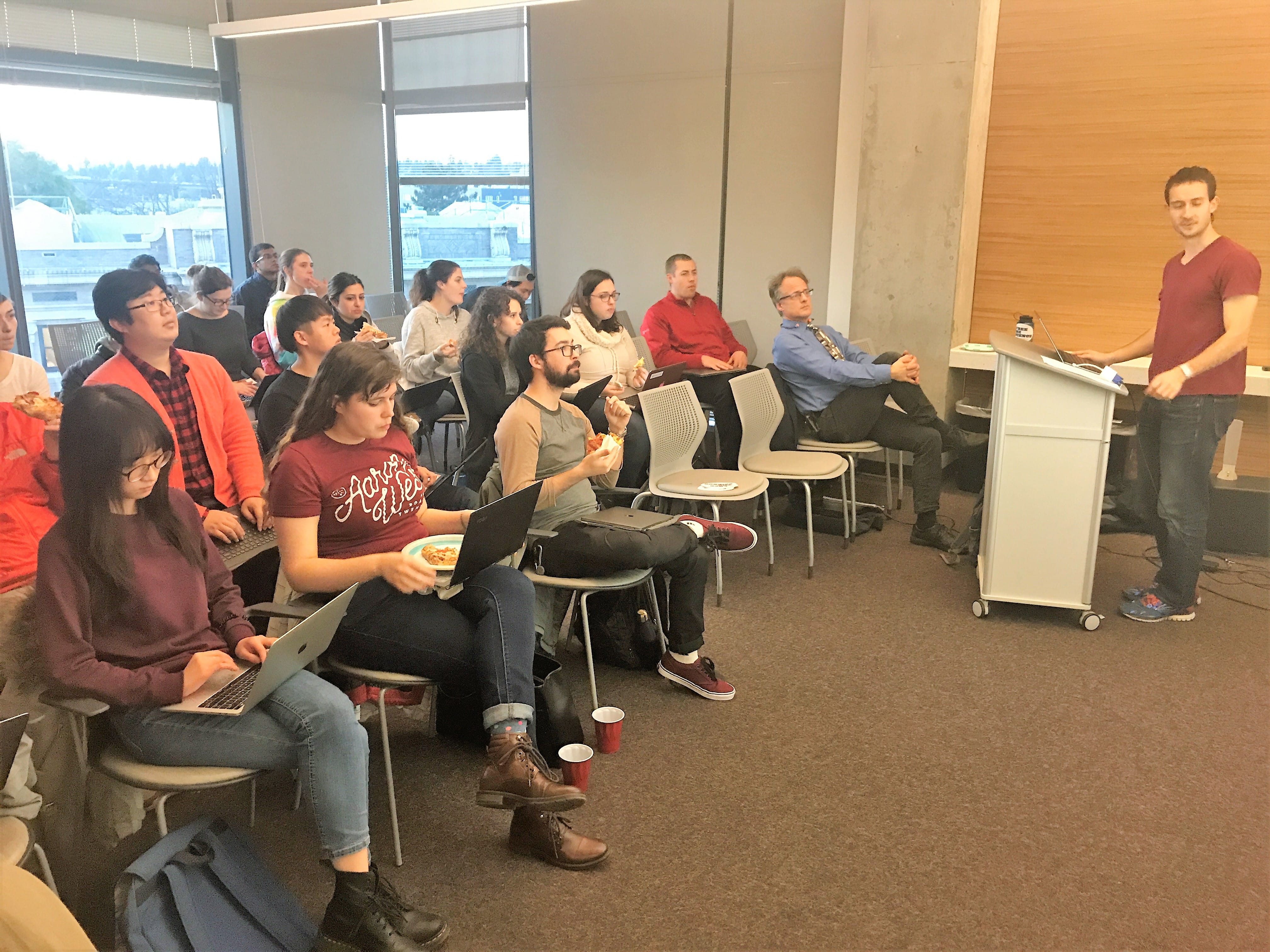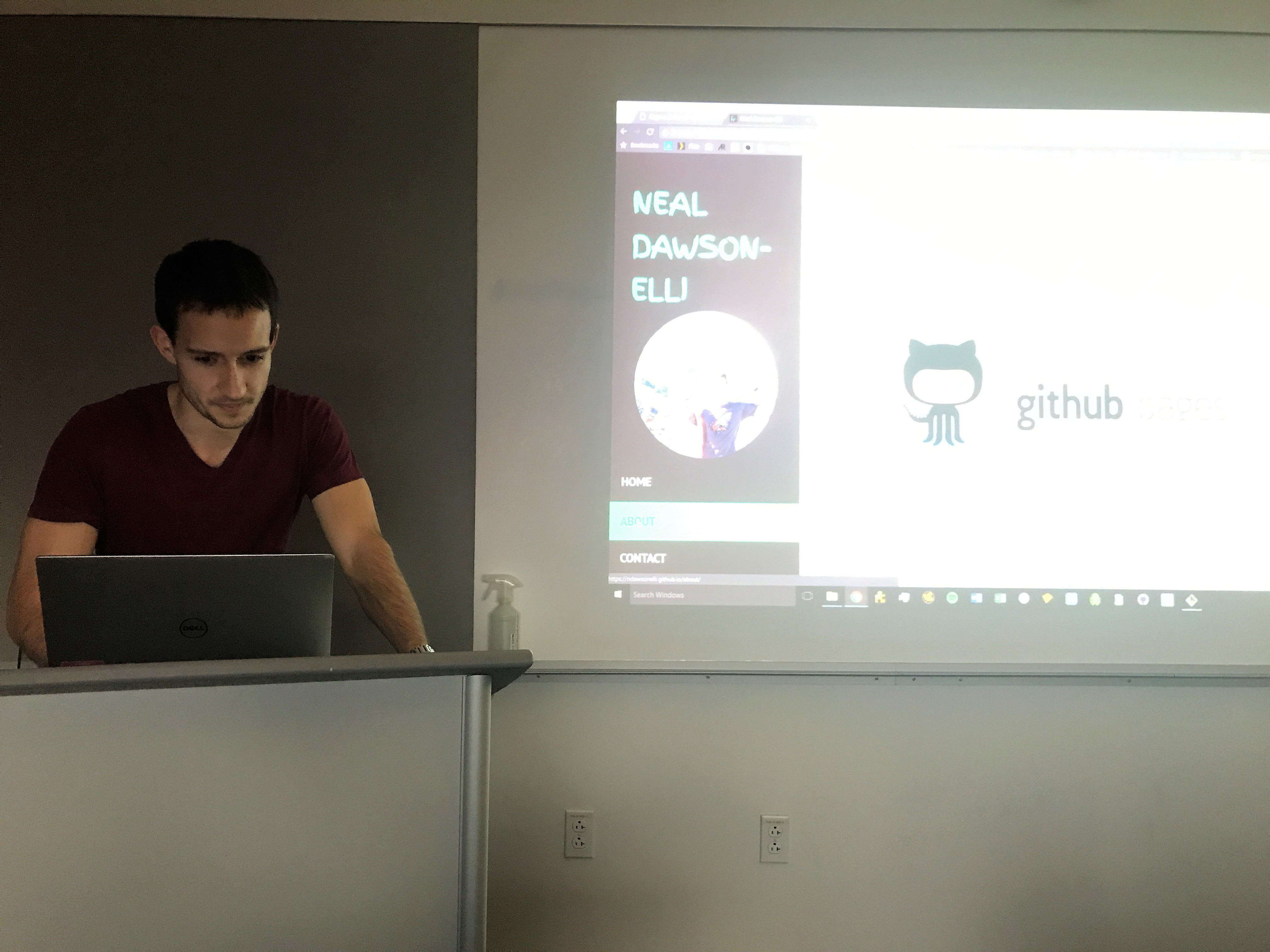ECS Data Sciences Hack Week
Source: https://www.electrochem.org/233/hack-week
May 14-19, 2018
Seattle, WA
Application Deadline: March 30, 2018
 Building on the success of the first ECS Data Sciences Hack Day (October 2017), ECS is pleased to offer another opportunity at the ECS spring meeting in Seattle. In May 2018, the program will be expanded to an entire week as the next stage in ECS supporting a growing electrochemical data science and open source community. The goal of this event is to increase awareness and impact of data science tools, open source software, and shared datasets in electrochemistry and solid state science and technology, by bringing together people from different backgrounds to collaborate.
Building on the success of the first ECS Data Sciences Hack Day (October 2017), ECS is pleased to offer another opportunity at the ECS spring meeting in Seattle. In May 2018, the program will be expanded to an entire week as the next stage in ECS supporting a growing electrochemical data science and open source community. The goal of this event is to increase awareness and impact of data science tools, open source software, and shared datasets in electrochemistry and solid state science and technology, by bringing together people from different backgrounds to collaborate.
Hack Week will again be led by the very capable and engaging team from University of Washington: Dan Schwartz, David Beck, and Matt Murbach. The program will kick off on Monday, May 14 and have sessions all day Wednesday through Friday, as well as optional software training tutorials during the week. The activities will culminate with project presentations and an optional clamming expedition on Saturday, a traditional activity in the Puget Sound area.
Meet the organizers

Who should attend?
All electrochemical engineers can benefit from this workshop, whether experimentally or theoretically focused. Learning how to create, share, use, and improve open source software tools and public datasets is one way to accelerate research progress in our field.
Travel Grants
A number of travel awards made possible by generous grants from the Army Research Office and the University of Washington Clean Energy Institute will be available. Please indicate your interest in being considered for a travel award when completing your ECS Hack Day application.
Schedule
Monday, May 14
- 1300-1600h — (Optional Segment) Introduction to Data Science Tools #1 (using the shell/terminal, version control)
- 1930-2030h — Hack Week Kickoff Event
Tuesday, May 15
- 1300-1600h — (Optional Segment) Introduction to Data Science Tools #2 (introduction to Python using Conda and Jupyter)
Wednesday, May 16*
- 0830-1200h — Intermediate Python Topics (documentation and testing)
- 1200-1300h — Project Updates/Ideation and Team Formation (over lunch)
- 1300-1800h — Project Hacking Time (1500h: breakout session for data visualization)
Thursday, May 17*
- 0830-1200h — Advanced Topics (cloud computing and machine learning w/ Python)
- 1200-1330h — Lunch Break
- 1330-1800h — Project Hacking Time (1500h: breakout session on reproducibility)
Friday, May 18
- 0830-1200h — Project Hacking Time
- 1200-1330h — Lunch Break
- 1330-1630h — Project Hacking Time
- 1700-1900h — Project Presentations and Wrap Up
Saturday, May 19 (Optional)
- 0900-1300h — (Optional) Social Event (clamming in the Puget Sound area)
- 1300-1700h — (Optional) Social Event Continues (cooking the catch and socializing)
* Note: The session room will remain open until 2330h for continued project hacking on Wednesday and Thursday.
Selection of attendees
The goal of this event is to increase awareness and impact of data science tools, open source software, and shared datasets in electrochemistry by bringing together people from different backgrounds to collaborate. We expect to have 42 slots for attendees, and will seek to build a cohort comprised of people with a diverse mix of experimental and theoretical electrochemical expertise, as well as a range of prior experiences creating and using open source software and python programing.
Interested?
The attendees of Hack Week are innovators, leaders, and emerging leadership in their fields, all interested in accelerating research progress through data science. If you or one of your colleagues would like to learn more, please contact Mary.Yess@electrochem.org. If you would like to sponsor Hack Week, please contact Ashley.Moran@electrochem.org to learn about opportunities. To be considered for a spot at hack week, those interested should complete this application form. Application deadline is March 30, 2018.

